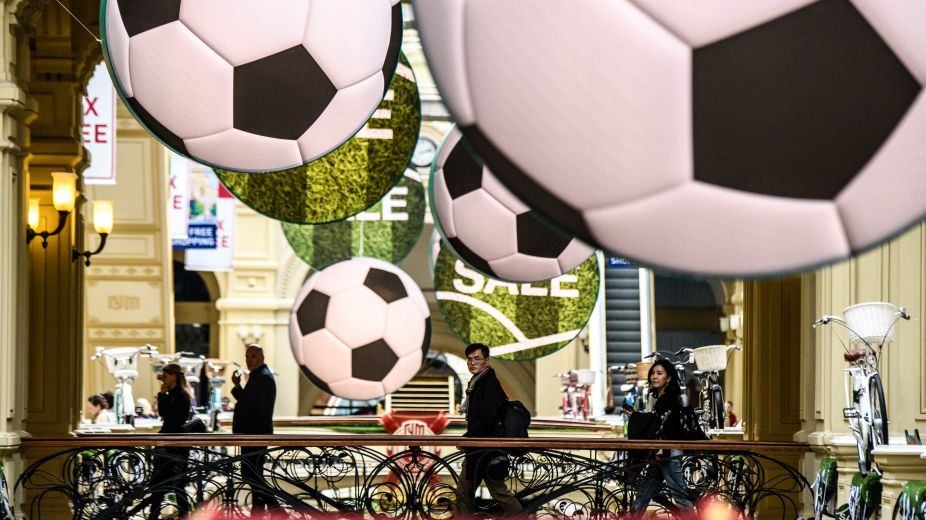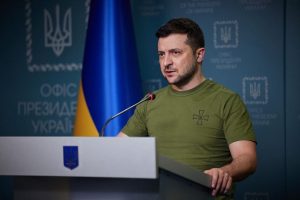World Cup organisers say the competition will draw more than one million fans to Russia, creating challenges that range from the logistical to the cultural, both for the hosts and their guests.
– One million expected –
Advertisement
========================
World Cup tickets keep selling. By yesterday, FIFA said that just over 2.4 million had been sold, more than 1.5 million of them outside Russia. FIFA said another 100,000, which had been reserved for its “constituent groups”, were now being offered to fans.
Even though the tickets are often sold in packages including several matches, that’s a lot of visiting supporters. The nice round number FIFA has been using is one million.
There will be the clapping Icelanders, the chanting English and the distinctive personalities of the supporters of the other 29 visiting countries.
The differing languages, songs, flags and fan cultures of the world will energise the streets of Russia’s host cities until the middle of July.
There won’t be an “Oranje” army in Russia, because the Dutch failed to qualify, but the biggest demand, outside the host nation, has come from a country that did not qualify.
FIFA said yesterday that it had sold 88,825 tickets to customers in the United States. After that came Brazil (72,512), Colombia (65,234) and Germany (62,541). The English broke into the international top ten in the latest figures with 32,362 tickets — just behind Australia.
Russia’s objective, organising committee chief Alexei Sorokin said, is to show fans “an unforgettable, colourful Russia”.
– USD 13 billion in infrastructure –
=================================
Russia has spent a whopping USD 13 billion on infrastructure.
“The airports in six cities have new terminals, 21 new hotels have been built in host cities,” Sorokin said in May, adding that “14 hospitals have been re-equipped for the tournament”.
“Nothing is superfluous,” he said. “We needed them.” “This fulfils a regional planning objective that is in effect catching up on the lack of investment over the last 20 years,” said Jean-Baptiste Guegan, one of the authors of a book investigating Russian
football.
He added that the goal was also to present a “radiant and attractive” image and give visitors the best possible experience so they would go home and recommend Russia as a tourist destination.
– Free transport and Fan ID
===========================
FIFA president Gianni Infantino told AFP this week: “I have never seen a country that has done so much to welcome the fans.” They will certainly be able to get between the host cities on trains, although in reality the vast majority who benefit will be Russian nationals. Sorokin said 700 additional trains would be laid on.
“It’s a good system but what they are offering is insufficient and the vast majority of trains are already reserved,” said Ronan Evain, head of Football Supporters Europe (FSE), an umbrella organisation of supporters in 40 countries.
– Accommodation concerns –
==========================
This could be a concern because some owners of apartments in host cities have sharply increased their prices. Some owners have cancelled bookings, and are now demanding higher prices than they originally advertised. Many fans complained of similar tactics in the Ukrainian capital Kiev in May when Liverpool played Real Madrid in the Champions League final.
Evain said: “In Moscow, things are starting to balance out because there is an enormous choice of accommodation, but in cities which are not as used to having tourist visitors, like Saransk and Nizhny Novgorod, prices are shooting up.” – Language barrier and human rights –
=====================================
The question of how foreign visitors will be received in Russia remains to be seen.
“A lot has been done to train volunteers and the security forces to avoid racism,” said Sylvia Schenk, of Transparency International, who also sits on a FIFA committee on human rights.
But in a country where black footballers are still occasionally subjected to monkey chants, there is an obvious risk of racist incidents.
A 2013 law in Russia makes homosexual “propaganda” a criminal offence if it is distributed to young people. FIFA has succeeded in negotiating with Russian authorities so that the rainbow flag, the symbol of lesbian, gay, bisexual and transgender pride, can be displayed in stadiums during the tournament.
“The rainbow flag will be allowed in stadiums for example. Is it solving all the issues of Russia with gay people? No, but it is a step,” Infantino told AFP.
Schenk, from Transparency International, said: “There will also be a ‘House of Pride’ in Moscow run by Russia NGOs and FIFA, and the authorities have confirmed that no-one will be prosecuted.” In terms of the training of volunteers, “many have not been given any training in English”, Evain said.
“It won’t necessarily be a problem unless there is a problem like an illness or a specific request from an elderly supporter, for example, bearing in mind that security measures mean spectators might have to walk several kilometres to the stadium.”











